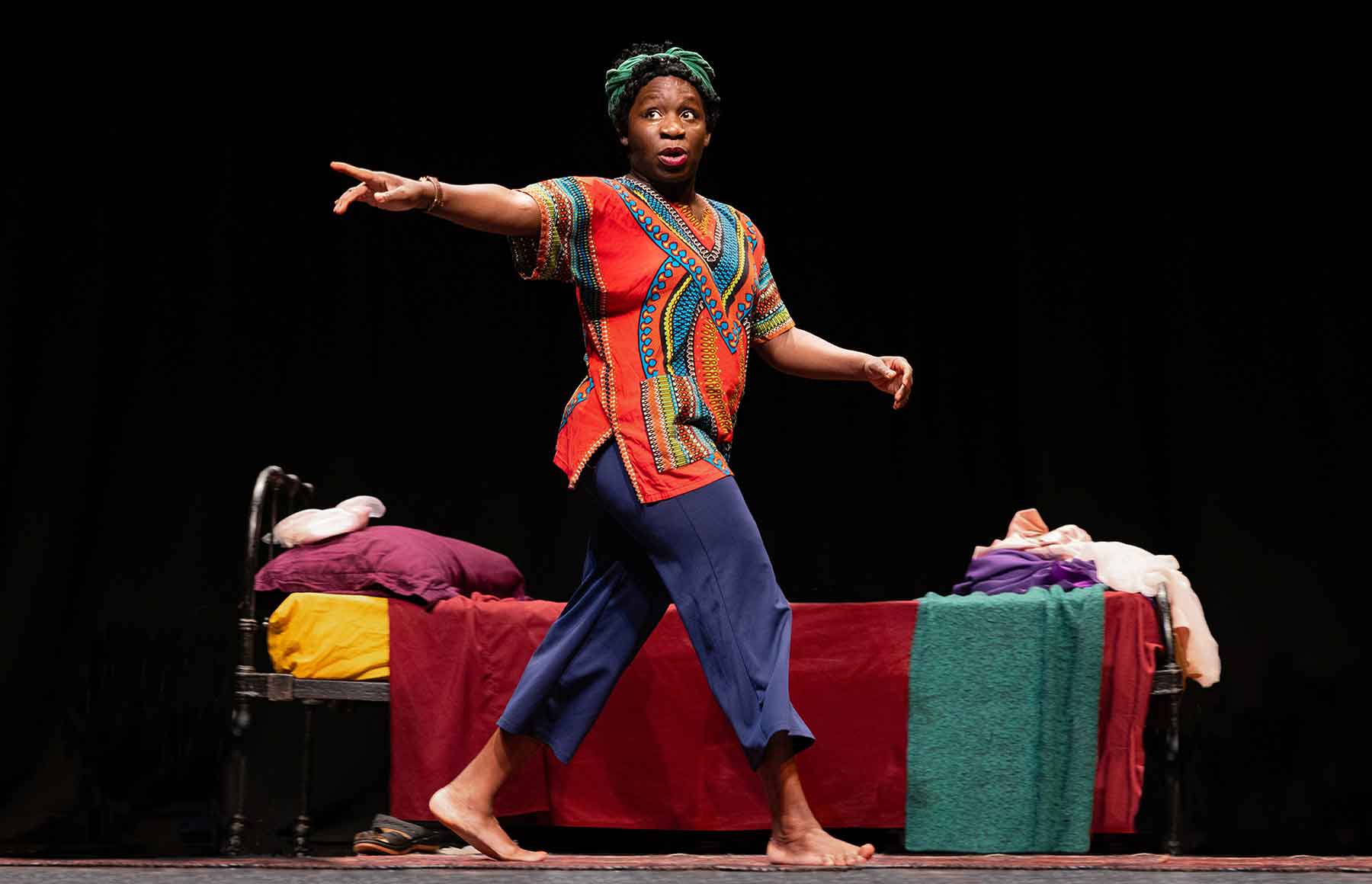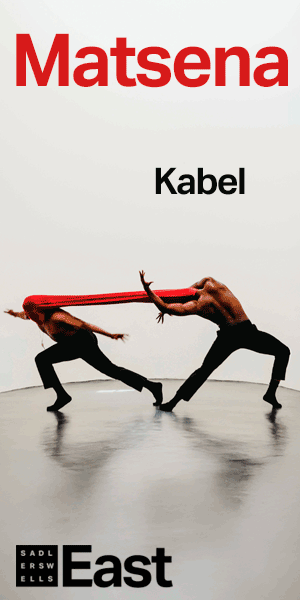
This play-with-music starts with minimal props; a bed is set horizontally upstage.
Either side is situated a table and chair, and a chair, respectively (slightly downstage).
In front of the bed lies a patterned rug, and at the foot of the bed sits a small trunk (housing various miscellaneous props). Other than that, the stage is unadorned, save for the sole presence – and voice – of Apphia Campbell, as she evokes the spirit of Nina Simone in this solo, one-act music-filled dramatization.
Campbell’s enactment certainly has focus and energy, but it is to her voice that special attention must first be given. Whether speaking softly, exclaiming loudly or breathing vibrant life into any of the several songs made famous by the celebrated legend, her tone, control and assured resonance command attention… much like the mighty Nina Simone herself.
Her alto effortlessly essays both the upper and lower registers; showcasing emotion-filled legato notes whilst navigating sweetly melodic trills and tasteful jazz and gospel ‘licks’. Campbell’s instrument is certainly impressive and this – coupled with her clear musicality and reverence for Simone’s oeuvre – marks her out as a trusty and engaging ‘tour guide’.
Of course, Nina Simone had more than one unique ‘voice’. As well as her singing instrument, her strongly-held belief in social and personal self-determination (resulting in frequent outspoken pronouncements as a civil-rights activist), combined with her much-vaunted genius as both pianist and songwriter to create a most singular magic. In this regard – as with many well-known multi-faceted musical geniuses from a by-gone ‘golden age’ (e.g. Ray Charles, Stevie Wonder, Aretha Franklin, etc.) – it is difficult for one performer to completely evince the full creative scope of such an icon. No matter how talented the representative performer is, at least one ‘voice’ invariably has to give. In this case, it is the live piano playing that is effectively side-lined.
Of course, it would be a near-impossible feat for one mere mortal to recreate both Simone’s incredibly idiosyncratic singing and her unique and beguiling piano-playing. However, it is somewhat ironic that – having started out as a classical concert pianist, and never having nurtured aspirations to be a performer of secular Jazz, Blues and R’n’B – it is her foremost musical gift that is so often ‘underwritten’… at least, popularly.
It is to Campbell’s credit that – in the guise of both creator and writer – she gives Simone her due; telling the story of how, having inherited her father’s love of classical music, she had her concerto recital ambitions stymied by racism (leading to her eventual transition as a unique performer of popular song forms).
This musical story is partially told through sung performance; Campbell effortlessly switching from emotive monologue to vibrant acapella – oftentimes aided by various pre-recorded soundscapes and piano-led backing tracks. A word of warning: this is neither a standard ‘juke-box’ musical, nor a comprehensive run-through of Nina Simone’s greatest hits. Indeed, many of her most well-known songs are either lightly-sketched here, or completely left out. This production is a dramatised representation of the musical, personal and social influences that influenced her personal life, activist persona, and her mental and spiritual journey.
In this regard, it often seems a little ‘episodic’; the connective tissue (i.e. dramatic sections between songs) feeling a little flimsy, at times.
Having said that, Apphia Campbell must be lauded for creating the platform upon which she, herself, delivers such a strong and powerful evocation of a 20th century musical icon and social activist legend.
Fans of both Nina Simone, and classic 20th century music will appreciate this play.
Perhaps even Nina Simone, herself.
Need to know: Black Is the Color of My Voice plays at Stratford East until Sat 15 June 2024 | See listing
Related links
Interview with Apphia Campbell






























